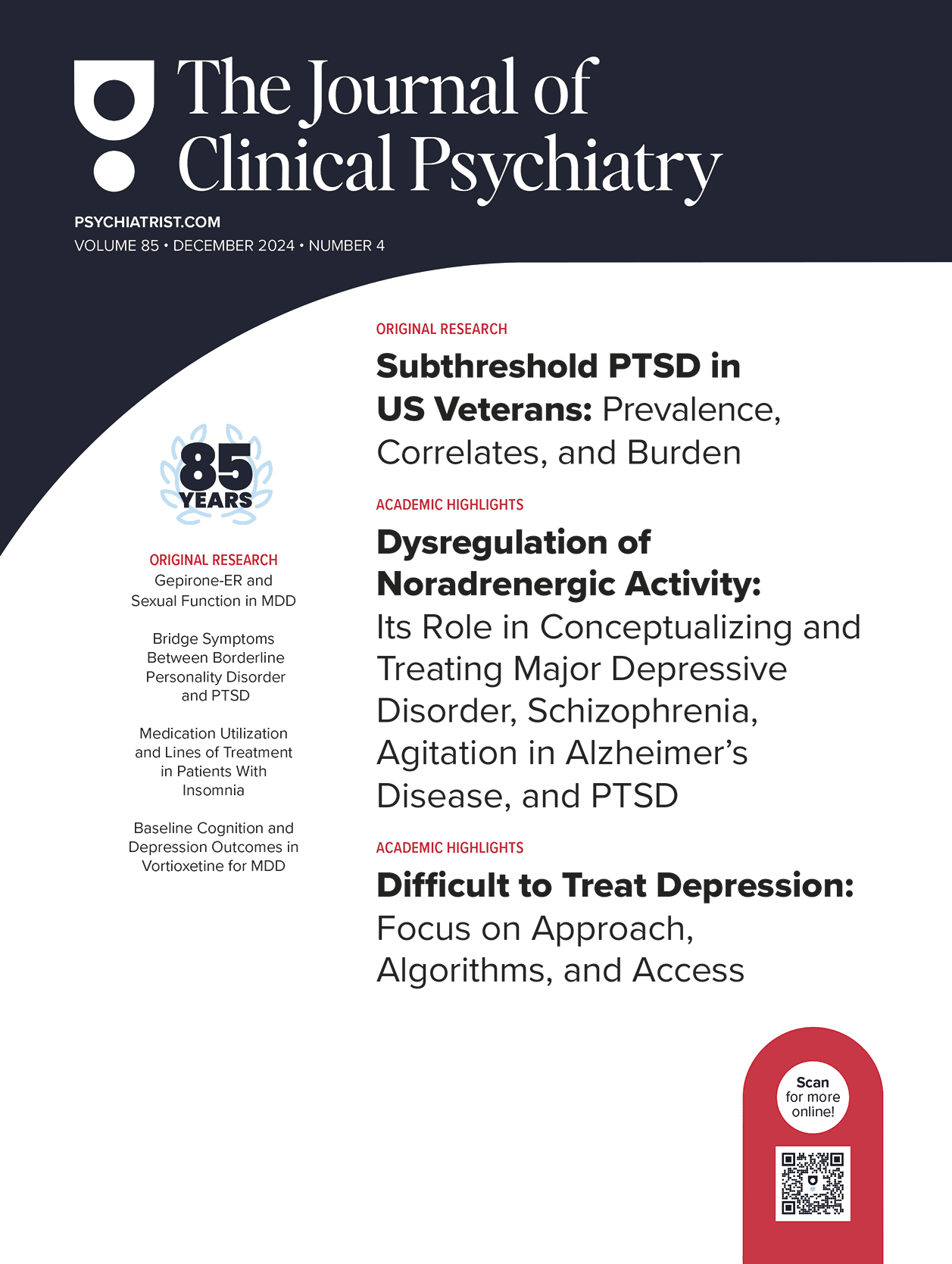Objective: Beyond genetic risk variants, the pathophysiology of bipolar disorders is likely to be partly determined by environmental susceptibility factors. Our study is one of the first to investigate, in a large sample of well-characterized bipolar patients, associations between clinical presentations and childhood trauma subtypes, including neglect and abuse items.
Method: 587 patients with DSM-IV-defined bipolar disorder were recruited from France and Norway between 1996-2008 and 2007-2012, respectively. History of childhood trauma was obtained using the Childhood Trauma Questionnaire. Clinical variables were assessed with the Structured Clinical Interview for DSM-IV Axis I Disorders (Norwegian sample) or the Diagnostic Interview for Genetic Studies (French sample).
Results: Earlier age at onset of bipolar illness, suicide attempts, rapid cycling, and an increased number of depressive episodes each had significant associations (P ≤ .001) with at least 1 subtype of childhood trauma (emotional abuse, sexual abuse, and emotional neglect). Multivariate analyses investigating trauma variables together showed that both emotional and sexual abuse were independent predictors of lower age at onset (P = .002 for each) and history of suicide attempts (OR = 1.60 [95% CI, 1.07 to 2.39], P = .023; OR = 1.80 [95% CI, 1.14 to 2.86], P = .012, respectively), while sexual abuse was the strongest predictor of rapid cycling (OR = 2.04 [95% CI, 1.21 to 3.42], P = .007). Females reported overall higher childhood trauma frequency and greater associations to clinical expressions than males (P values < .05).
Conclusions: Our results demonstrate consistent associations between childhood trauma and more severe clinical characteristics in bipolar disorder. Further, they show the importance of including emotional abuse as well as the more frequently investigated sexual abuse when targeting clinical characteristics of bipolar disorder.
J Clin Psychiatry 2013;74(10):991-998
© Copyright 2013 Physicians Postgraduate Press, Inc.
Submitted: January 4, 2013; accepted March 2, 2013 (doi:10.4088/JCP.13m08353).
Corresponding author: Monica Aas, PhD, TOP Study Group, KG Jebsen Centre of Psychosis Research, Division of Mental Health and Addiction, Institute of Clinical Medicine, Bygg 49, Ullev×¥l sykehus, PO Box 4956, Nydalen, 0424 Oslo, Norway ([email protected]).
Continue Reading...
Did you know members enjoy unlimited free PDF downloads as part of their subscription? Subscribe today for instant access to this article and our entire library in your preferred format. Alternatively, you can purchase the PDF of this article individually.
Please sign in or purchase this PDF for $40.00.
Save
Cite
Already a member? Login




